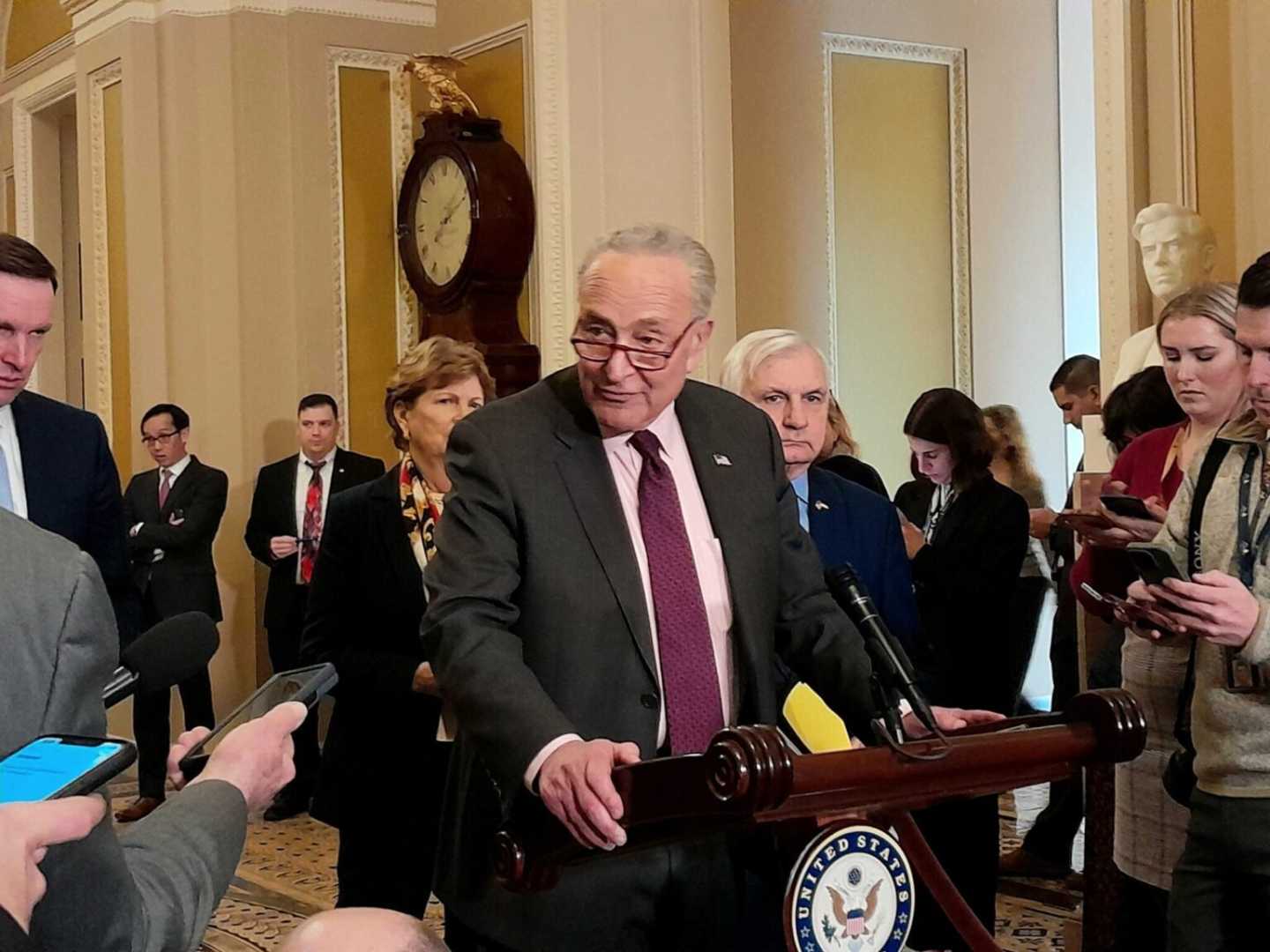Politics
Schumer Defends Leadership Amid Calls for Transition

WASHINGTON, D.C. — Senate Majority Leader Chuck Schumer is facing increasing pressure from party members to step down from his leadership position following votes that have divided the Democratic Party. The calls for a change come after Schumer supported a government funding bill that was overwhelmingly rejected by House Democrats.
Appearing on NBC’s “Meet the Press” on March 17, Schumer firmly stated, “I’m not stepping down.” This comes amidst growing speculation that the 74-year-old senator may be seeking a graceful exit before the end of his current term in January 2029, as younger party members begin to rise in prominence.
Danielle Vinson, a political science professor at Furman University, suggested that Schumer is likely aware of the demands for fresh leadership. “With the 2026 midterms ahead, there may be increasing motivation for him to step aside, particularly if younger senators begin to take more active roles,” Vinson said.
Calls for Schumer’s resignation intensified after he joined eight Senate Democrats and independent Senator Angus King in voting for the continuing resolution on March 14, a move criticized by many in the House. Representative Alexandria Ocasio-Cortez, who is viewed as a leader for younger Democrats, has been cited as a potential alternative, though she is not up for reelection until 2028.
Colorado Senator Michael Bennet commented at a town hall in Golden on March 17, stating, “It’s important that people know when it’s time to go,” indirectly addressing Schumer’s situation.
In another critical remark, Representative Glenn Ivey from Maryland noted on March 16 that the senator faced backlash after supporting the funding bill, which nearly all House Democrats opposed. California Representative Ro Khanna stated that voters are “fed up with the old guard,” drawing attention to fatigue within the party regarding long-standing leadership.
Former House Speaker Nancy Pelosi has also been vocal about her dissatisfaction with Schumer’s negotiation tactics. At a press conference on March 16, she expressed her belief that Democratic senators should have pursued alternative solutions instead of backing the GOP’s measure to avoid a government shutdown.
Political science expert Christopher Borick from Muhlenberg College commented that the criticisms from figures like Pelosi highlight Schumer’s “diminished standing” within the party. However, he acknowledged Schumer’s resilience and ability to maintain his position despite the turmoil. “Given the political climate, there’s a growing desire for a change in Senate leadership,” he said.
During his interview on “Meet the Press,” Schumer defended his decision, explaining the potential ramifications of a government shutdown. He emphasized, “A shutdown would be 15 or 20 times worse for the American people,” arguing that it would allow the Trump administration to enforce drastic budget cuts.
Schumer stated, “When you’re a leader, you have to act to avoid a real danger that might come down the curve,” showcasing his commitment to navigating the party’s challenges effectively.
As the political landscape evolves, Schumer’s role as Majority Leader may be uncertain, particularly if he chooses not to seek reelection in 2028. His decisions in the coming months could significantly impact the future direction of the Democratic Party.












